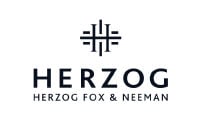
General counsel | AppsFlyer





Leor Hurwitz
General counsel | AppsFlyer
Team Size: 12
Focus on…In-house legal department culture in a hypergrowth company
The role of in-house counsel in hypergrowth companies is one of the more challenging in-house roles. There is a balance that needs to be found between enabling the company to move fast and ensuring legal risks are appropriately managed. This balance is not easy to find nor easy to maintain.
While large established enterprises have their own challenges, they are capable of absorbing slow and bureaucratic processes. They are also in a position of power and are often able to dictate terms to avoid taking on any risk.
Hypergrowth startups cannot afford to be overly bureaucratic and have much more difficulty in avoiding risk.
As the hypergrowth company looks to move and grow fast, the legal team needs to ensure that the company’s business units involve legal early in their decision-making processes. Whether it is expanding into new territories, hiring personnel, developing, and selling new products, or creating new policies, legal should be involved early.
In failing to involve legal on time, the company may realise that the product name it chose infringes third party IP rights, the open source used creates unwanted consequences, the new subsidiary established is not the most ideal from a tax perspective and the deal that was just closed exposes the company to considerable risk.
So, how can the legal team ensure its successful involvement in companies running full steam ahead?
The answer is having the right culture. In-house legal teams, especially in hypergrowth startup companies, need to be service oriented and approachable. They must be business enablers. The view needs to be of finding solutions and not only finding risk. They need to be trusted advisors and not just blockers.
For that to happen it is imperative that the in-house lawyers have a deep knowledge of the company’s business, its products and technology. They need to be able to hold discussions not just on the pure legal matters but on their impact on the business. Saying “no, this is too risky” is not enough. You need to be able to say, “this is risky, but we can mitigate that risk by doing X and Y.” You will only be able to propose X and Y if you have a deep knowledge of the business and products.
The in-house team needs to be approachable and responsive. You do not want your business units looking for ways to avoid legal. Therefore, quick turn-around times are a must. If you cannot provide answers quickly, your business units will find ways to avoid you. Good communication with your business units is also critical. If you cannot get something done in time, then knowing how to communicate that to your stakeholder will go a long way in ensuring that you will not be avoided the next time around.
When you have a service oriented, approachable, and business enablement culture, the company’s business units will view legal as a valuable asset in helping them to meet their hypergrowth goals. In turn, legal will have visibility into the issues being faced by the company thus enabling it to appropriately manage risk.